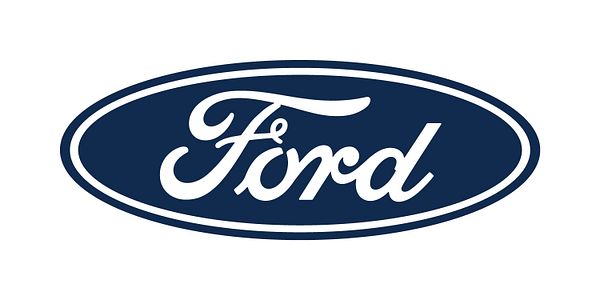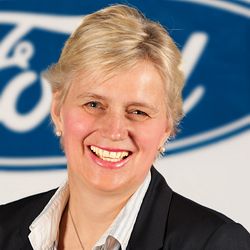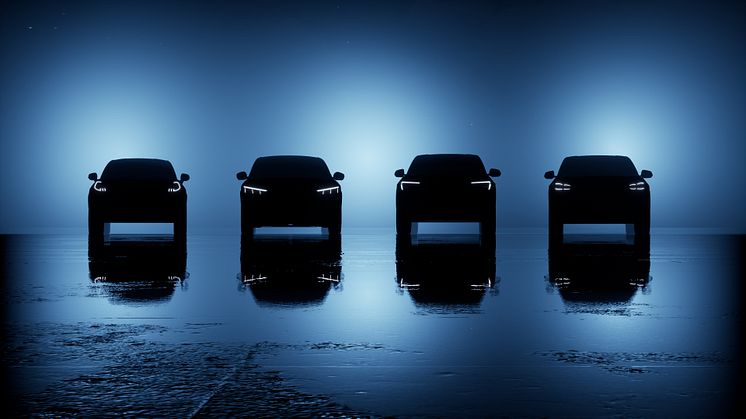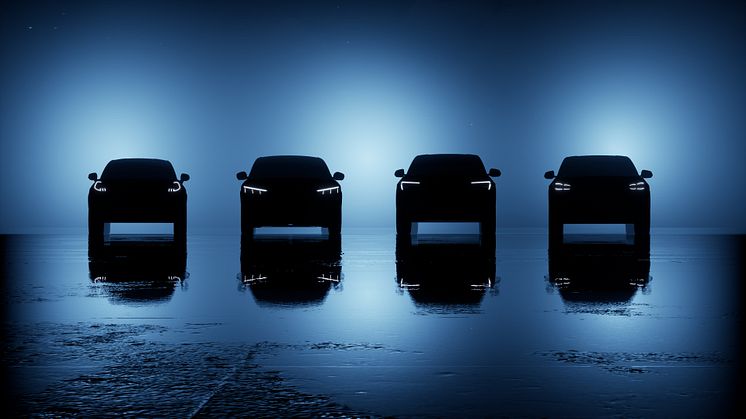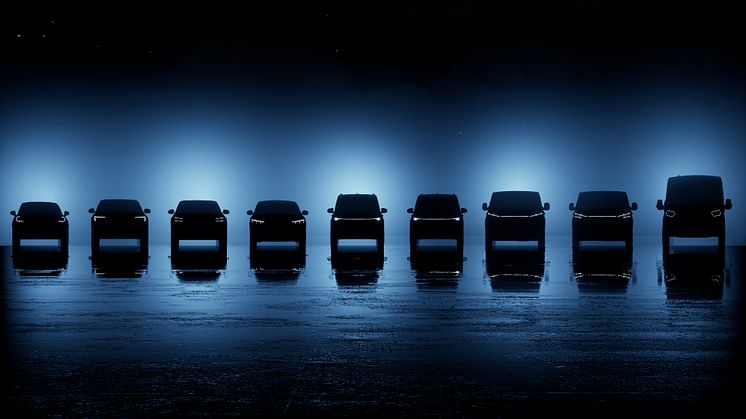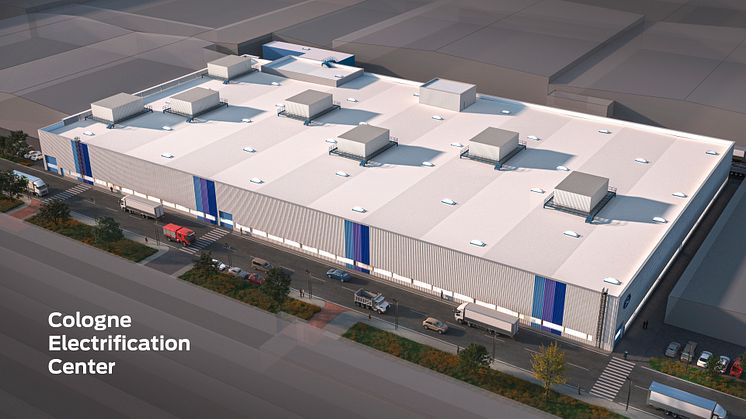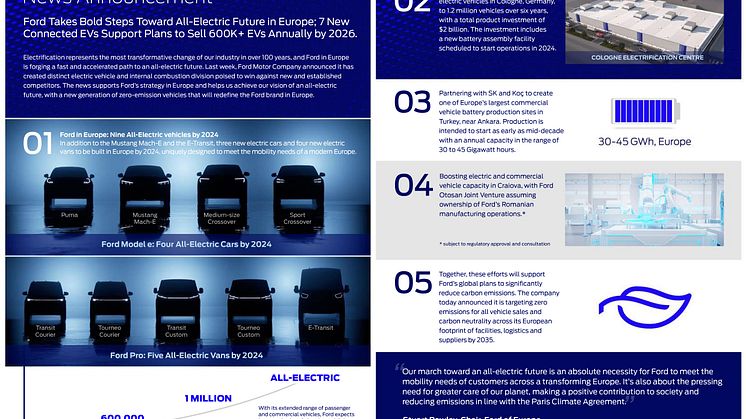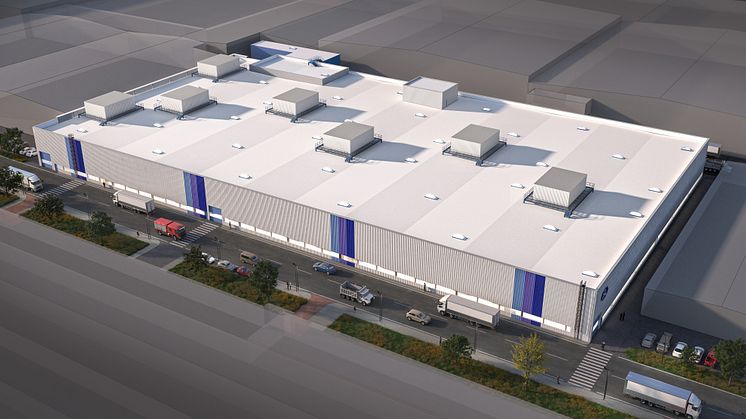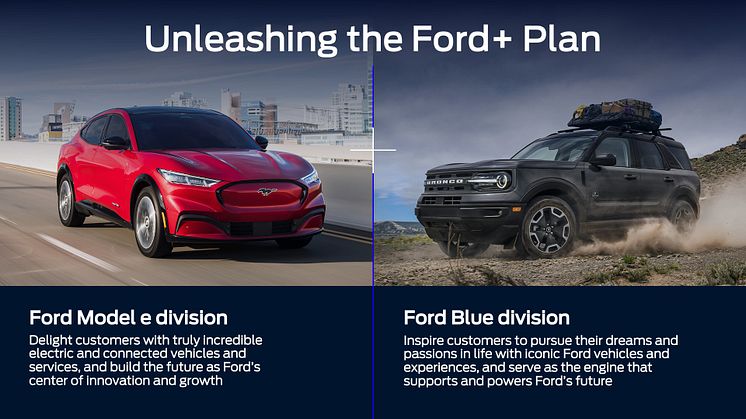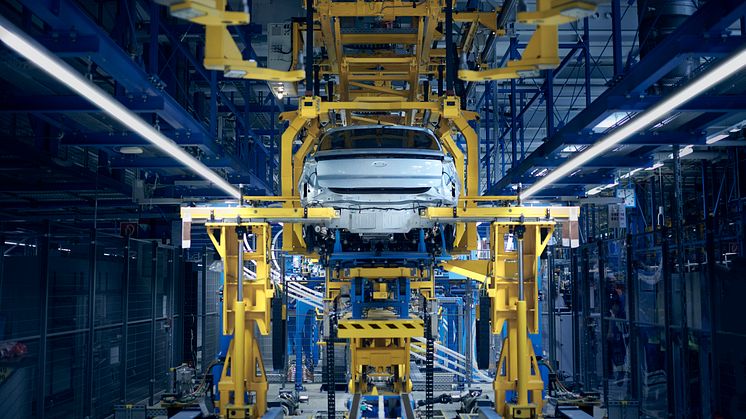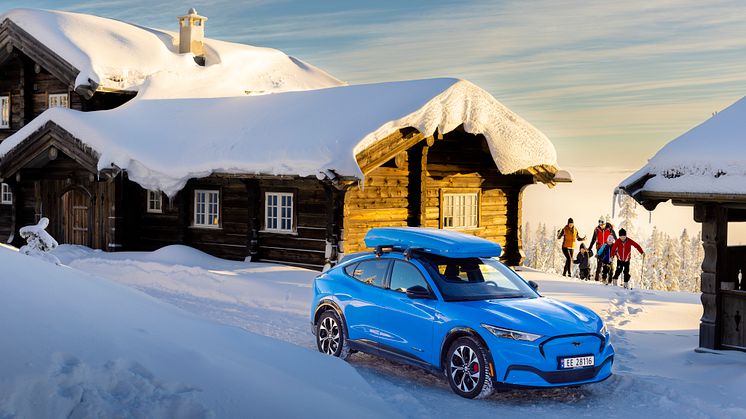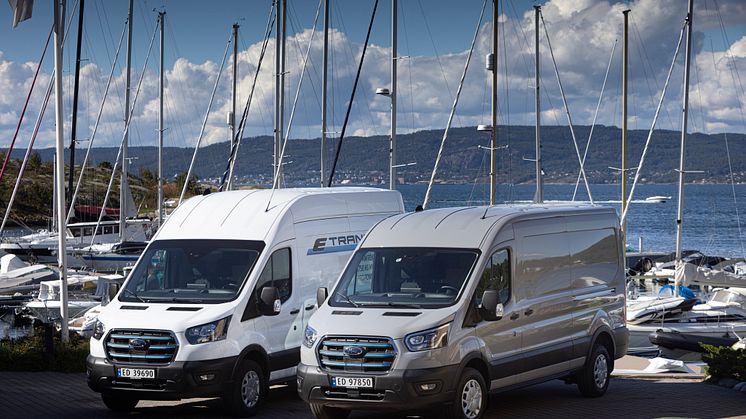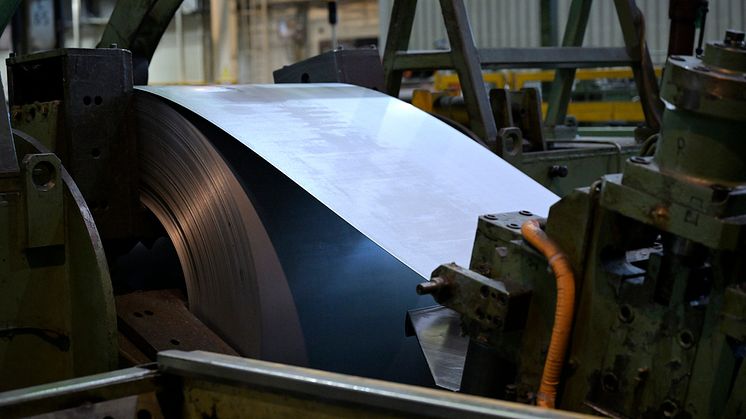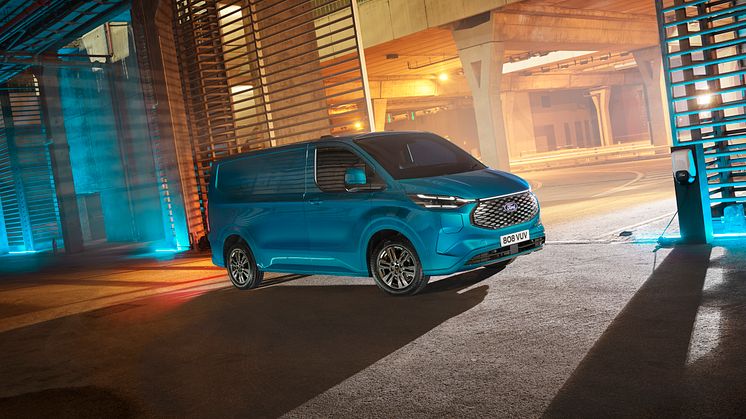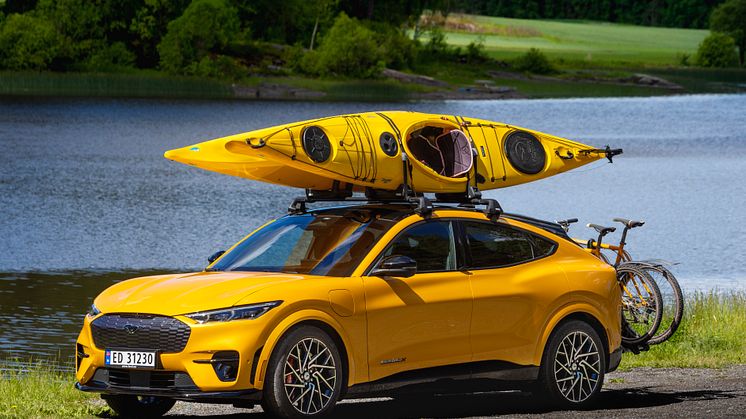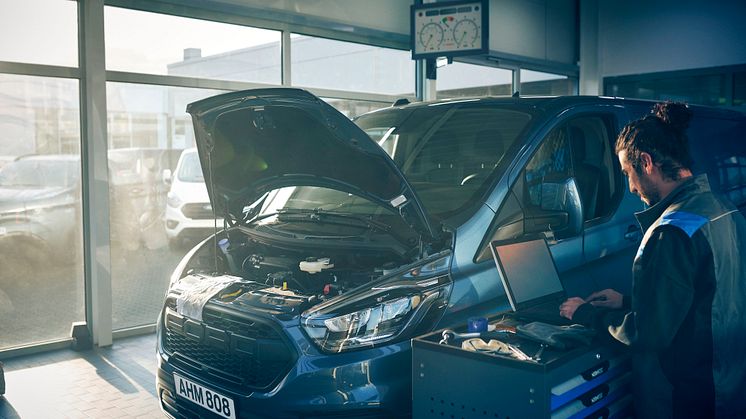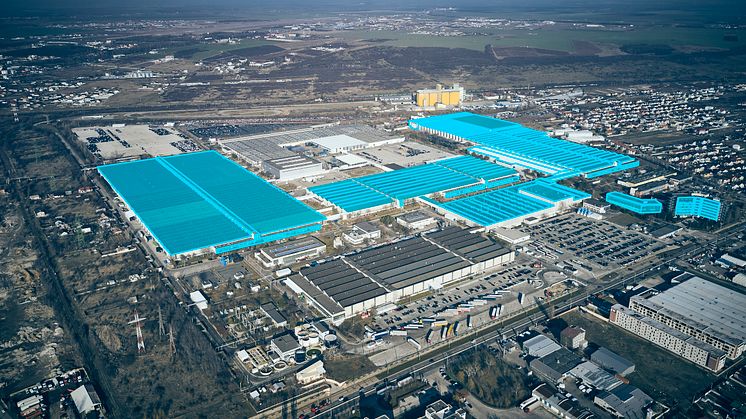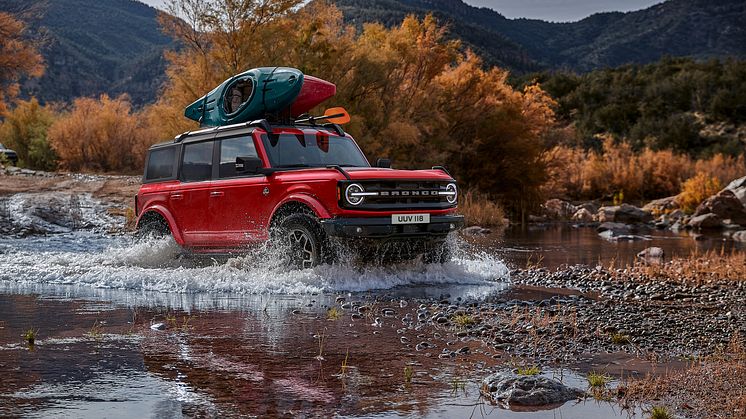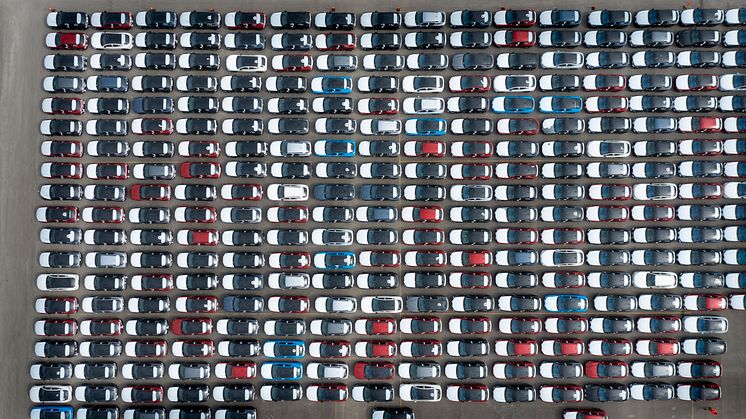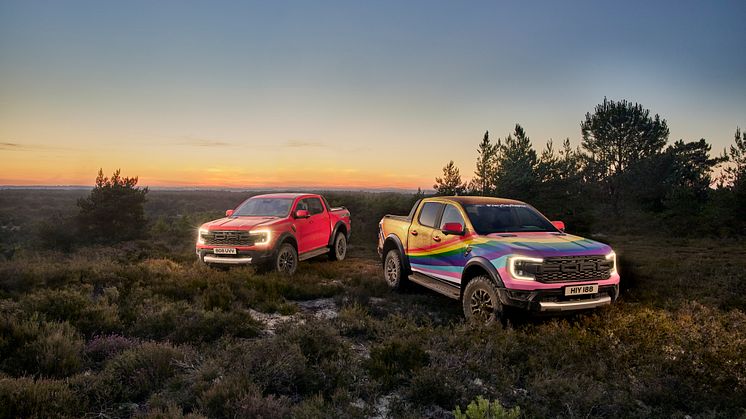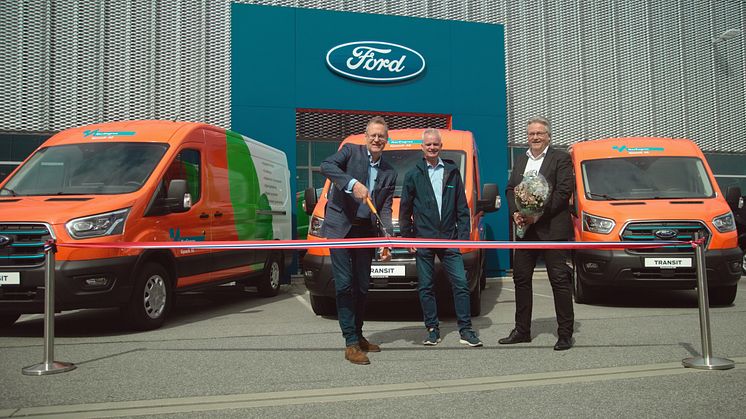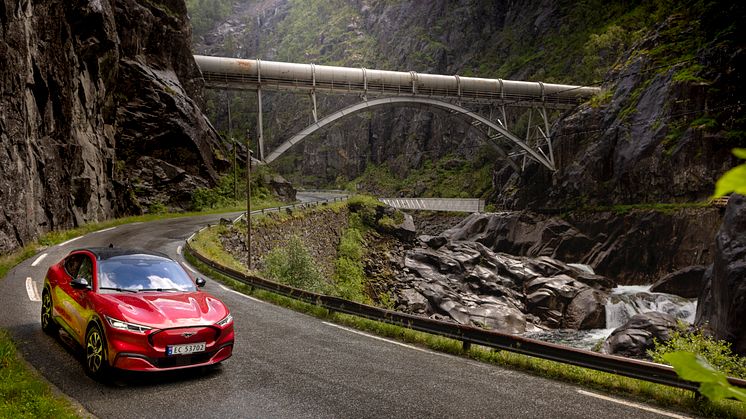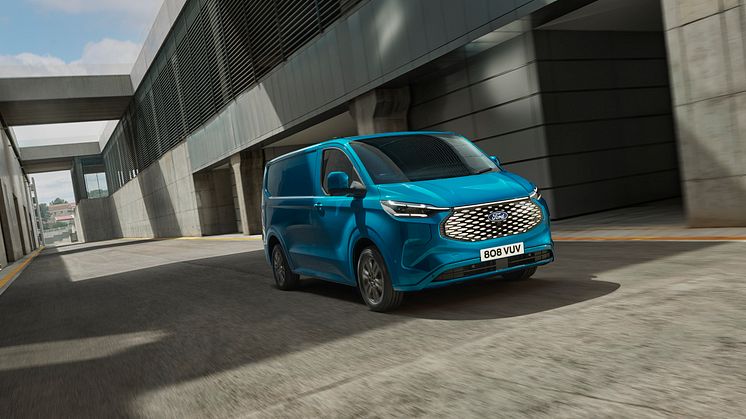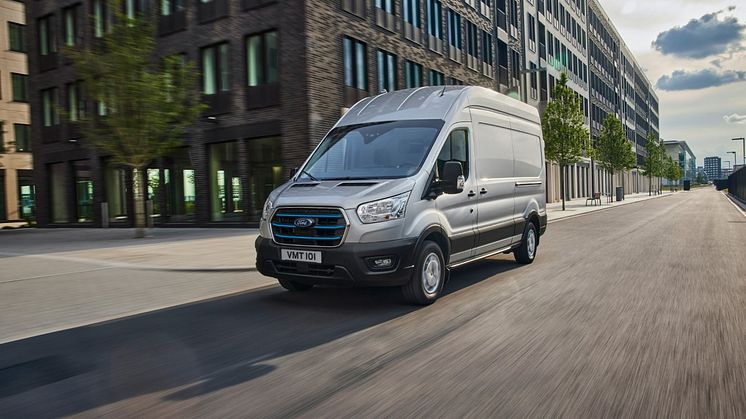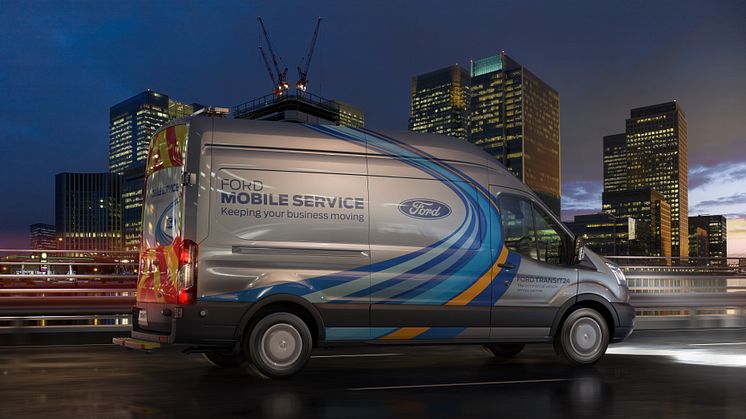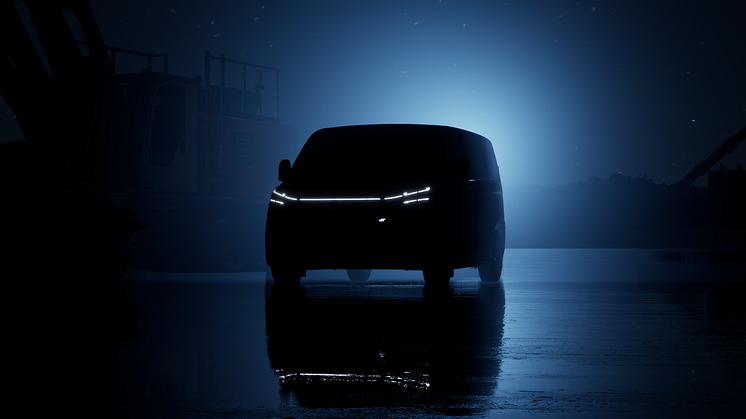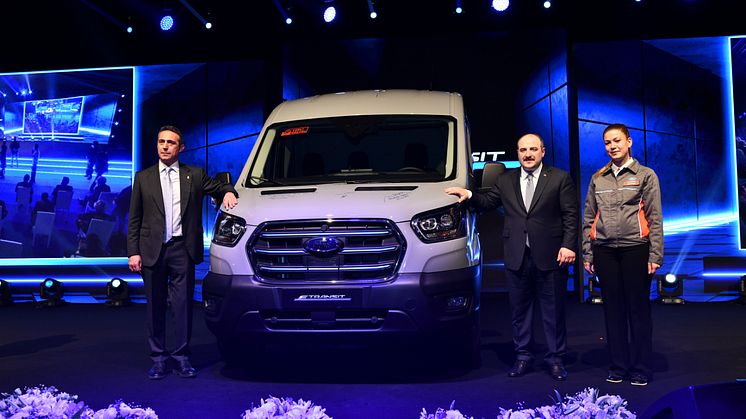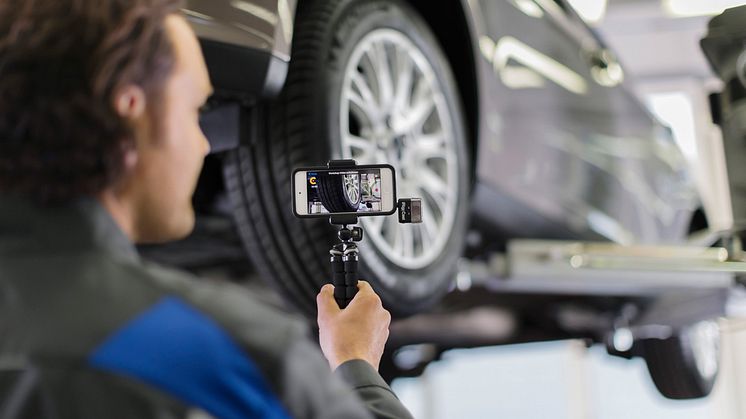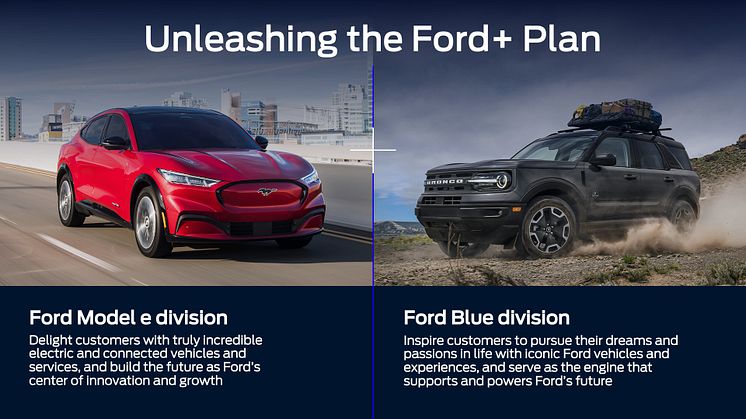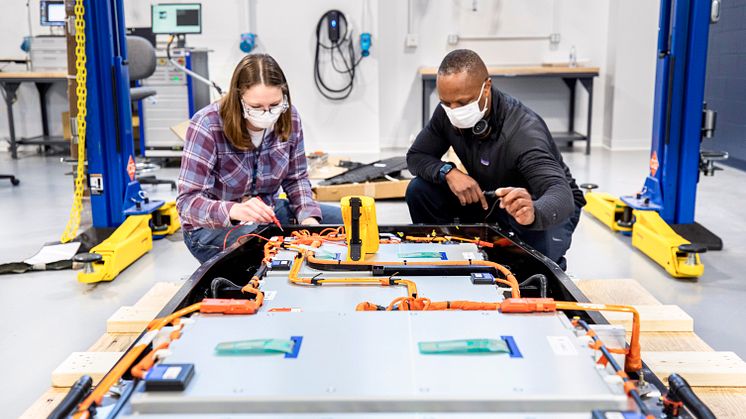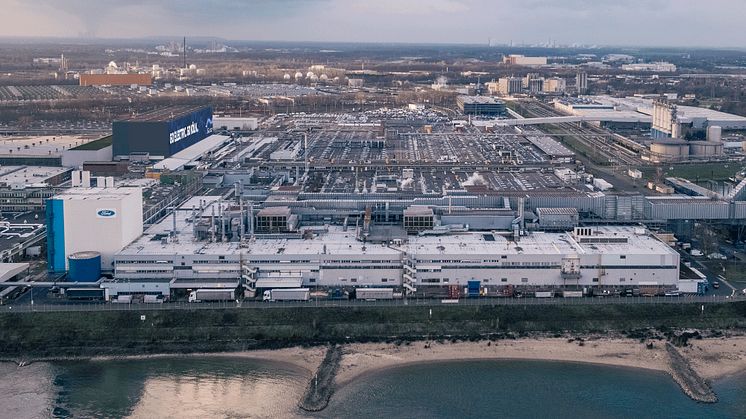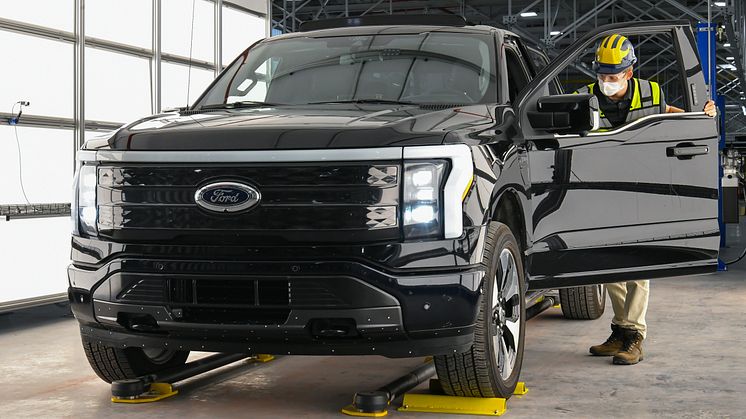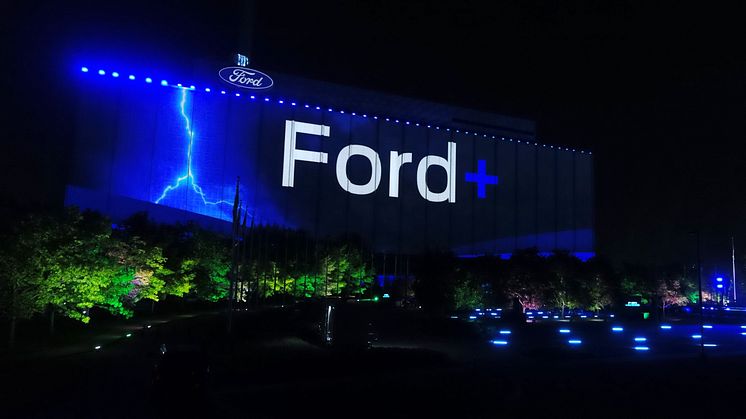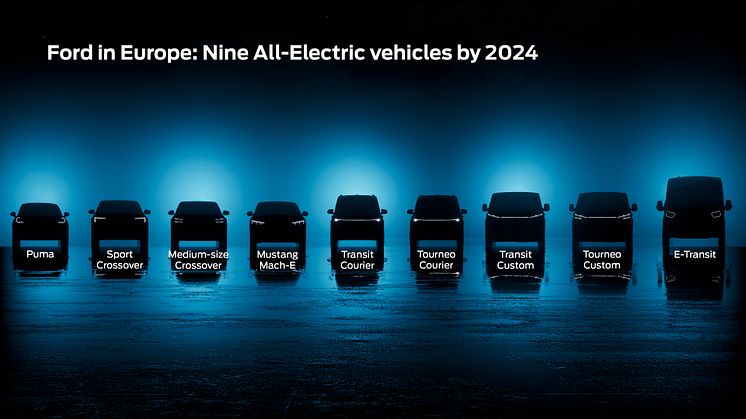
Pressemelding -
Ford med storstilt europeisk elbilsatsing: Lanserer hele 7 nye helelektriske bilmodeller før utgangen av 2024
Før utgangen av 2024 skal Ford lansere hele 7 nye helelektriske person- og nyttekjøretøymodeller for det europeiske markedet. Det inkluderer blant annet en helelektrisk Ford Puma og en 5-seters mellomstor crossover med 500 kilometers elektrisk rekkevidde.
I tillegg introduserer de også en ny og sportslig helelektrisk crossover.
Salget av SUV-er og crossovere stod for hele 58 % av det totale personbilsalget i Europa i 2021. Det var en oppgang på nesten 20 prosentpoeng sammenlignet med året før.
Ford, som er Europas mest solgte nyttekjøretøymerke, skal også tilby nye Transit Custom som helelektrisk fra 2023. Deretter følger også nye Transit Courier som en helelektrisk variant i 2024. Disse blir også tilgjengelig i helelektriske personbilutgaver, som flerbruksbilene Tourneo Custom og Tourneo Courier.
Vil øke den europeiske elbilproduksjonen markant
De to helt nye helelektriske crossover personbilmodellene vil bli produsert ved Fords Cologne Electrification Centre i Tyskland. Den nye 5-seters mellomstore crossoveren vil bli avduket senere i år. I 2023 blir den satt i produksjon, og den vil bli etterfulgt av en sportslig helelektrisk crossover som vil bli produsert fra 2024.
Elbilproduksjonen i Køln økes til 1,2 millioner biler over en 6-års periode. Investeringene i produksjonen av de nye elektriske personbilene i Køln er forventet å bli 2 milliarder dollar. Dette inkluderer også investeringer i en ny fabrikk for montering av batterier som etter planen skal åpnes i 2024.
I tillegg vil Fords bestselgende personbil i Europa, den kompakte crossoveren Ford Puma, bli tilgjengelig i helelektrisk versjon fra 2024. Denne modellen vil bli produsert i Craiova, Romania.
Med dagens annonsering vil Ford bidra til å kraftig øke antall produserte elbiler i Europa. Den nye helelektriske Mustang Mach-E og performance-varianten, Mustang Mach-E GT, er begge allerede tilgjengelige. I løpet av de neste månedene kommer også nye E-Transit. Ford forventer å selge over 600 000 helelektriske biler i Europa før utgangen av 2026.
– Det er helt avgjørende for Ford å fortsette på veien mot en helelektrisk fremtid. Vi må møte nye europeiske mobilitetsbehov med mer innovasjon og total dedikasjon for kundene. Men det handler også om behovet for å ta bedre vare på planeten vår. Derfor skal vi redusere klimagassutslippene i tråd med Parisavtalen, sier toppsjefen i Ford Europa, Stuart Rowley.
Vil bygge en av de største batterifabrikkene i Europa
Ford annonserte også i dag at det jobbes med ett nytt industriledende joint venture-selskap i Tyrkia. Dette skal etter planen bli en av de største fabrikkene for produksjon av batterier til elbiler i hele Europa.
Den storstilte elbilsatsingen er en del av Fords globale plan om for å redusere karbonutslippene vesentlig. Målet er at det innen 2035 skal være nullutslipp fra Fords bilsalg i Europa, og at alle selskapets fabrikker, distribusjon og leverandører da er karbonnøytrale.
– Det er gledelig å se den raske forandringen som skjer i Europa. Dette utfordrer hele bilindustrien til å utvikle bedre, mer miljøvennlige og mer teknologisk avanserte biler. Ford satser alt og handler raskt for å møte etterspørselen i Europa og verden forøvrig, sier toppsjef i Ford Motor Company, Jim Farley.
----------------------------------------------------------
Les hele den engelske pressemeldingen her:
COLOGNE, Germany, March 14, 2022 – Ford today announced significant strides toward an all-electric future in Europe, which will see the company transformed and offering a new generation of seven, all-electric, fully-connected passenger vehicles and vans by 2024.
Today’s announcement builds on the recent news that the company has created a new global business unit – Ford Model e – focused on the design, production, and distribution of electric and connected vehicles. Together with Ford Pro, the business unit focused on Ford’s commercial vehicle business, these two business units will define Ford’s future in Europe.
“I am delighted to see the pace of change in Europe – challenging our entire industry to build better, cleaner and more digital vehicles. Ford is all-in and moving fast to meet the demand in Europe and around the globe,” said Jim Farley, Ford president and CEO.
“This is why we have created Ford Model e – allowing us to move at the speed of a start-up to build electric vehicles that delight and offer connected services unique to Ford and that are built with Ford-grade engineering and safety.”
With its extended range of electric passenger and commercial vehicle models, Ford expects its annual sales of electric vehicles in Europe to exceed 600,000 units in 2026, and also reaffirmed its intention to deliver a 6 percent EBIT margin in Europe in 2023. The acceleration in Europe supports Ford’s goal to sell more than 2 million EVs globally by 2026 and deliver company adjusted EBIT margin of 10 percent.
“Our march toward an all-electric future is an absolute necessity for Ford to meet the mobility needs of customers across a transforming Europe,” said Stuart Rowley, chair, Ford of Europe. “It’s also about the pressing need for greater care of our planet, making a positive contribution to society and reducing emissions in line with the Paris Climate Agreement.”
Together, these efforts will support Ford’s global plans to significantly reduce carbon emissions. The company today announced it is targeting zero emissions for all vehicle sales in Europe and carbon neutrality across its European footprint of facilities, logistics and suppliers by 2035.
Seven new electric vehicles by 2024
Following the successful European introduction of the all-electric Mach-E in 2021 and Mach-E GT this year, plus the launch of the E-Transit in the next quarter, Ford today unveiled plans for seven
all-electric vehicles to join the Ford family in Europe – three new passenger vehicles and four new commercial vehicles.
Starting in 2023, Ford will begin production of an all-new electric passenger vehicle, a medium-sized crossover, built in Cologne with a second electric vehicle added to the Cologne production line-up in 2024. In addition, Ford’s top-selling passenger vehicle in Europe, the Ford Puma, will be available as an electric version made in Craiova, Romania, starting in 2024.
Reaffirming its leadership as Europe’s top-selling commercial vehicle brand, Ford’s iconic Transit range will include four new electric models – the all-new Transit Custom one-tonne van and Tourneo Custom multi-purpose vehicle in 2023, and the smaller, next generation Transit Courier van and Tourneo Courier multi-purpose vehicle in 2024.
“These new Ford electric vehicles signal what is nothing less than the total transformation of our brand in Europe – a new generation of zero-emission vehicles, optimized for a connected world, offering our customers truly outstanding user experiences,” said Rowley.
EV production and investment in Cologne
Ford confirmed today that the first volume all-electric passenger vehicle to come out of the Ford Cologne Electrification Centre will be a five-seat, medium-sized crossover. In 2021, sports utilities and crossovers accounted for 58 percent of all Ford passenger vehicle sold in the continent, up nearly 20 percentage points from 2020.
The all-electric crossover breaks new boundaries for Ford. Capable of a 500km driving range on a single charge, the vehicle and its name will be revealed later in 2022, with production commencing in 2023.
Today’s confirmation that a second, all-electric passenger vehicle – a sports crossover – will be built at the Ford Cologne Electrification Centre means that electric vehicle production at the facility will increase to 1.2 million vehicles over a six-year timeframe. Investment in the new electric passenger vehicles to be built in Cologne is expected to be $2 billion. The investment includes a new battery assembly facility scheduled to start operations in 2024.
New joint venture aims to increase battery production in Europe
To support Ford’s ambitious vehicle electrification plans, Ford, SK On Co., Ltd. and Koç Holding have signed a non-binding Memorandum of Understanding for a new, industry-leading joint venture business in Turkey. Subject to execution of a final agreement, the three partners plan to create one of the largest EV battery facilities in the European wider region.
The joint venture would be located near Ankara and will manufacture high Nickel NMC cells for assembly into battery array modules. Production is intended to start as early as mid-decade with an annual capacity likely to be in the range of 30 to 45 Gigawatt hours.
The investment the three partners are planning in the battery joint venture – including support from the Turkish Government – will directly benefit large and small commercial vehicle operators across Europe, reducing energy and running costs and providing a significant contribution to CO2 reduction.
Boosting EV manufacturing capacity in Craiova
Ford’s manufacturing plant in Craiova, Romania, will play a significant role in the company’s electric and commercial vehicle growth plans in Europe.
From 2024, European customers will be able to purchase an all-electric version of the Ford Puma, Ford’s popular compact crossover. The Puma was Ford’s best-selling passenger vehicle in Europe in 2021, and the all-electric Puma will bring this successful new nameplate to an even wider group of European customers when it goes into production in Craiova in 2024.
Additionally, the all-new Transit Courier, the popular light commercial vehicle, and Tourneo Courier, a compact multi-purpose vehicle, will also be produced in Craiova from 2023, with all-electric versions coming in 2024.
To further boost electric and commercial vehicle capacity, Ford announced this morning that Ford Otosan will assume ownership of the Craiova plant and manufacturing business, subject to regulatory approval and consultation. Ford Otosan, a joint venture between Ford Motor Company and Koç Holding, is one of the longest running and most successful joint ventures in the global auto industry.
“We welcome this opportunity to grow our joint venture with Koc Holding and leverage this strategic partnership to better utilize our resources and know-how in Romania,” Rowley said. “Ford Craiova is today a strong success story, and we believe that through Ford Otosan's experience and expertise in electrification and commercial vehicles it can reach even higher levels of achievement.”
Emner
Om Ford Motor Company
Ford Motor Company (NYSE: F) er et globalt selskap med hovedkontor i Dearborn, Michigan, USA som forplikter seg til å skape en bedre verden, hvor alle kan forflytte seg som de vil og følge sine drømmer. Selskapets Ford+ plan for vekst og verdiskapning, kombinerer eksisterende ressurser, nye muligheter og en «always-on» relasjon med kundene som vil berike deres opplevelser og øke kundelojaliteten. Ford utvikler, produserer, markedsfører og har service på sine tilkoblede, og i økende grad elektrifiserte, personbiler og nyttekjøretøy: Fords lastebiler, nyttekjøretøy, personbiler og Lincolns luksusbiler. Selskapet har som mål å ha en ledende rolle innen elektrifisering, tilkoblede tjenester og mobilitetsløsninger, inkludert selvkjørende biler og finansielle tjenester gjennom Ford Motor Credit Company. Ford har cirka 183.000 ansatte over hele verden. For mer informasjon om Ford, deres produkter og Ford Motor Credit Company, vennligst se www.corporate.ford.com
Ford Europa er ansvarlig for å produsere, selge og vedlikeholde Ford kjøretøy i 50 markeder og har ca. 41.000 ansatte ved sine heleide anlegg og konsoliderte fellesforetak. De har rundt 55.000 ansatte når ikke-konsoliderte virksomheter er inkludert. I tillegg til Ford Motor Credit Company inkluderer Ford Europas virksomhet Ford Servicemarked og 14 produksjonsenheter (hvorav 10 er heleide anlegg og 4 er ukonsoliderte fellesforetak). Den første Ford-bilen ble sendt til Europa i 1903 – samme år som Ford Motor Company ble etablert. Produksjon i Europa startet i 1911.
Ford Motor Norge er en bilprodusent og mobilitetsselskap som importerer biler og deler for salg gjennom et forhandlernettverk på 82 salgs- og servicepunkter. Den første Ford-bilen kom til Norge allerede i 1906, trolig gjennom firmaet E.C. Gjestvang i Oslo. Lenge var det kun private forhandlere som importerte Ford til Norge via Danmark. Først i 1960 ble Ford Motor Norge etablert etter sterkt engasjement fra blant annet Trygve Lie, FNs første generalsekretær og norsk ambassadør i Washington.
